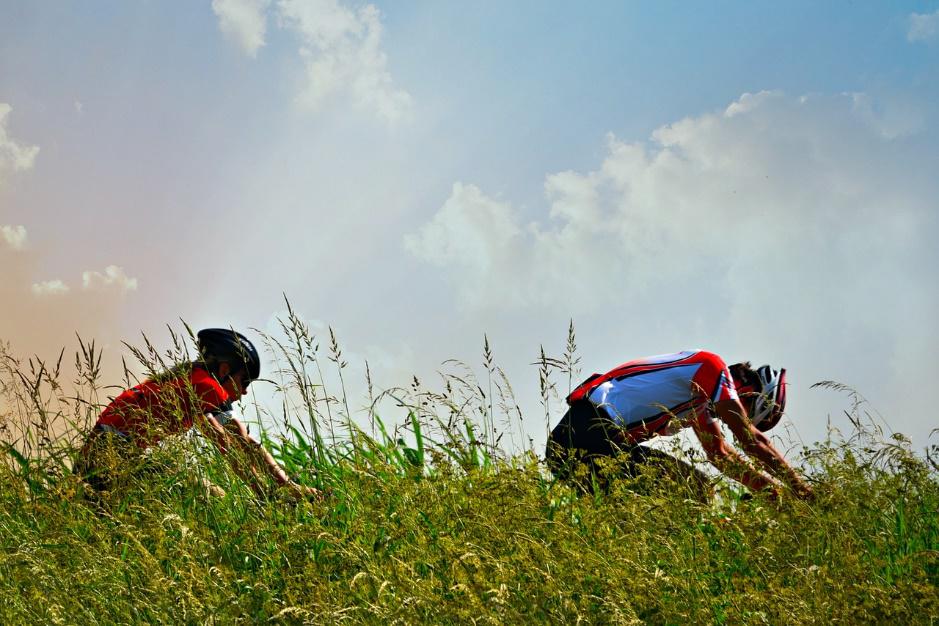Are Bad Habits Killing Your Training?
Training is what we need to do if we want to become better cyclists. We are continually being told we need to train. We are given heroic tales of the training plans of some pros, and these are supposed to inspire us to greater heights, to greater suffering. What though if we stop thinking about our training.
What if life gets in the way, we all have to work, we all have commitments. So, what if to make these situations easier we start to fall into certain plans and ideas about training. What if we don’t listen to our bodies and just become automatons. What if these habits are counterproductive to training.
The sufferfest
We have created an idea that suffering is the goal during training. If we aren’t suffering and we aren’t going full out for the session, we have somehow ruined the limited time we had to get out and ride, or stay in and ride. We have been fed the illusion of the pro who does mythical training rides up mountains that go forever.
That’s great for the pro. After they have done this session, they can go for a lie-down. The rest of us mere mortals have to get on with the rest of our lives. Our bosses and families don’t care that we have just set a new KOM, powered through a stacked field on Zwift, or anything else to do with our hobby.
If we keep doing this, we’ll never have enough energy, and we’ll always feel fatigued, mainly because we are. The keyword in the previous paragraph was a hobby. A hobby should be fun, and it shouldn’t destroy how the rest of your life is lived.
Take a break

Taking a break doesn’t have to be a full on break. Go out for an easy pedal. Look at the world around you. Feel your legs turning your pedals around. Live in that moment that you're on the bike. If you do this, you’ll love your bike again, and you’ll feel more rested for the other parts of your life.
Remember your body only has so many reserves that it can use for exercise. The more you deplete your glycogen levels, the more you’ll feel tired and eventually open yourself up to all kinds of illnesses as your immune system suffers. You’ll eventually even start to have problems with your muscles not being able to repair themselves after a session.
Set realistic goals
Setting pie in the sky goals is easy. It is easy to be taken in by all the comments of reach for the stars if you want to attain greatness. However, this is pretty much counterproductive. The harder your goals are to attain the less likely you are to hit them.
Not hitting your goals can lead to a lowering of your mood, making it harder for you to progress and impacting the rest of your life. Set small goals and see how you go. Eventually, you might hit that pie in the sky goal just by getting there incrementally. What we can be sure on is you’ll feel much better within yourself.
Not pushing yourself
There is an opposite to the above issues, and that is not pushing yourself. You need to push yourself at times. If you don’t push yourself then how will you ever progress? You’ll stay on the same plateau forever.
You’ll just be going out riding the same route, in the same gear, with the same cadence, and effectively you’ll be doing nothing. There will be no growth there. Occasionally you have to push yourself to help rise out of the plateau that your fitness is on. As Eddy Merckx once said, “Don’t ride upgrades, ride up grades.”
If you don’t occasionally push yourself your body won’t adapt and make you a stronger person. You also don’t want to do this too often. A great way to become a good cyclist is to do some interval sessions and a good few endurance rides, on that note.
Forget your computer or GPS unit
You don’t always need to know the time or distance you’ve gone or think you still have to do. Leave the Garmin at home and get out there and pedal. You’ll see a lot more of the world if you're not staring at a bunch of numbers on your handlebars.

It can also be a great way to kill a good day out on the bike if you end up just staring at numbers. How do you feel when you want to do a century, and you’ve reached 92 miles, and you're on your last legs. Would It be better to know your aiming for another 8 miles or not to know? Will only doing 96 miles be a lot worse than doing 100 miles?
Listen to your body and if you need to cut a session short do it, don’t follow a computer on your bike. Remember you have a life to lead after getting off the bike, and it is better to get off the bike in a great mood than a defeated mood.
You need your rest
Rest is when your body makes the adaptations based on your previous block of training. If you are continually training all your doing is tearing down, you're never allowing your body the chance to build. Your body needs downtime for glycogen stores to rebuild and for your muscles to recover from exercise tearing them apart.
Resting doesn’t mean just lying on the sofa and eating pizza. It also means you can go and try some active rest. Do some low-intensity exercise, go for a walk with your friends or your kids. Relax and know that your body is getting stronger.
Do something new
Take a break from the bike and go swimming, go to the gym, or try some Yoga. Working out in other sports will also feel like a rest. If you pick your other sport correctly, you can have it help with your core strength or to help loosen your hamstrings. These options will help you become a better cyclist and keep you enjoying your cycling.









